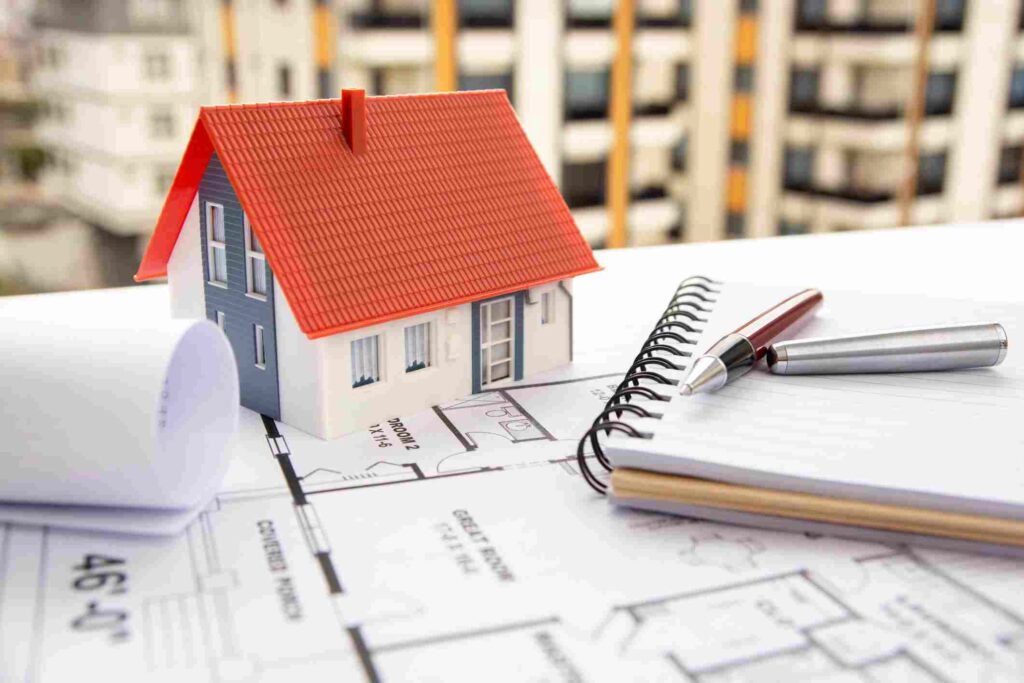Want to try your luck in the real estate department? Let’s see how to become a real estate developer as a fresh starter. The path to turning into an effective property developer can be invigorating and financially rewarding. To create value and reap rewards, real estate development entails identifying, purchasing, and further developing properties.
This book will give you a road map to seek a career in real estate development, regardless of whether you have minimal earlier mastery and restricted financial assets to work with.
Regardless of your lack of relevant knowledge or your restricted budget, we will investigate the means you ought to take to become a real estate developer here.
How To Become A Successful Real Estate Developer?

To get detailed guidance about how to become a developer real estate you have to know first what are the basic educational qualifications that every real estate developer is going to need for a fresh start.
Education And Knowledge
Obtaining the necessary education and knowledge is a crucial initial move toward a career as a real estate developer. Having a background in finance, business, or real estate is very useful, yet a particular degree isn’t necessarily needed.
To fabricate a strong foundation, you should consider earning a bachelor’s college education in real estate, finance, or a comparable subject. You can gain a more profound grasp of the industry by participating in seminars, workshops, and online courses related to real estate.
Networking
The real estate development industry places a high value on networking. Networking with seasoned individuals in your sector can open up a universe of chances and learning for you.
Look for mentors through participating in industry events, joining local real estate associations, and talking to individuals in the field. Finding collaborators, investors, and partners for your future projects can also be made easier by networking.
Gain Practical Experience
Acquiring practical knowledge is essential assuming you have no related knowledge in the field of real estate development. Consider starting in a passage-level situation inside a real estate firm, like a real estate analyst or property manager.
Your eyes will be opened to the nuances of the industry all in all, from market research to property management, thanks to this drenching in practice.
Develop A Business Plan
For aspirational real estate developers, a thoroughly examined business plan is crucial. Target market, financing strategy, and project timeline ought to all be framed in your plan. It’s also crucial to have backup plans in case your initial one doesn’t work out.
While looking for financing or investors, a great business plan won’t just act as a roadmap for your endeavors but also as a critical report.
Identify Your Niche
Real estate development covers an extensive variety of property types, including residential, commercial, industrial, and blended-use. Identifying your niche early on can help you specialize and become a specialist in a particular market section.
Research local market patterns and demand to figure out which niche aligns with your inclinations and goals. Identifying your niches is one of the most crucial steps which is the answer to how to become a real estate developer.
Financial Preparation
Real estate development frequently requires a significant financial investment. Assuming you’re starting with restricted reserves, you’ll have to investigate creative financing choices.
Consider partnering with investors, getting loans, or searching out joint endeavors to open doors. It’s crucial to have a strong financial plan and budget in place to guarantee the outcome of your projects.
Location
Location plays a pivotal role in real estate development. Direct exhaustive market research to identify areas with development potential and popularity.
A very much-picked location can significantly impact the outcome of your projects, as it affects property values and market dynamics.
Legal And Regulatory Compliance
Navigating the legal and regulatory aspects of real estate development is essential. You’ll have to understand drafting laws, construction standards, and grant necessities in your target area.
Building relationships with local government officials and employing experienced legal advice can assist you with navigating the complicated landscape of regulations.
Can You Become A Real Estate Developer With No Experience?

Yes, it’s possible. Then how to become a real estate developer with no experience? Here are the hints that you must know to become a real estate developer with no experience.
1. Start Small
Small projects are a decent place to start if you’re new to the real estate development industry. It’s conceivable you’ve thought about putting resources into a duplex, a triplet, or any other unobtrusive residential property. You will gain invaluable mastery in property management, renovation, and tenant relations through these smaller ventures.
2. Partner With Experts
Collaborating with seasoned specialists could assist you with making up for your lack of experience, consequently partnering with Experts. Search for role models or business partners with a history of effective real estate development projects. Their knowledge and experience may be invaluable as you embark on extraordinary adventures.
3. Continuous Learning
Real estate development is a calling that is constantly developing, subsequently, learning is continual. In fact, it’s critical to stay aware of industry patterns and developments even after you’ve launched your career. Attend workshops, read industry publications, and organize with experts to keep current.
Becoming A Real Estate Developer With No Money! Is it Possible?

This is also possible to become a real estate developer without investing a single penny. Then see how to become a real estate developer with no money and what are the easy growing process.
1. Find Investors
Finding Investors is vital when you lack the financial means to put resources into properties. Show potential investors the benefits they could make by putting resources into your real estate development projects. Potential wellsprings of capital incorporate angel investors, crowdfunding sites, and private equity firms.
2. Sweat Equity
Sweat Equity alludes to exchanging one’s time, exertion, and aptitude for money. if you can add value via your knowledge and hard exertion, property proprietors may occasionally work with you. If you follow this course, you can participate in the project without taking on a large straightforward financial weight.
3. Creative Financing
Investigate creative financing choices, for example, merchant financing, leasing decisions, and real estate crowdfunding. With practically zero initial cash input, these strategies can give you access to properties and projects.
Conclusion

Hope you get the ideas about how to become a real estate developer without money and fast. To become a developer in real estate, you should initially identify your specialization, learn about the financials, and adhere to all applicable laws and regulations. Novices can excel by taking baby steps, teaming up with seasoned professionals, and making learning a top need. Finding investors, offering sweat equity, and investigating innovative financing decisions can all assist you with getting your chance, regardless of whether you have any money to place into it from the beginning. In the domain of real estate development, achievement is within reach for the people who are dedicated, diligent, and strategic.
Also Read:
- How To Find Real Estate Agencies?
- When Will Toronto Real Estate Market Crash
- How Much Money Do You Need To Start A Real Estate Business?


